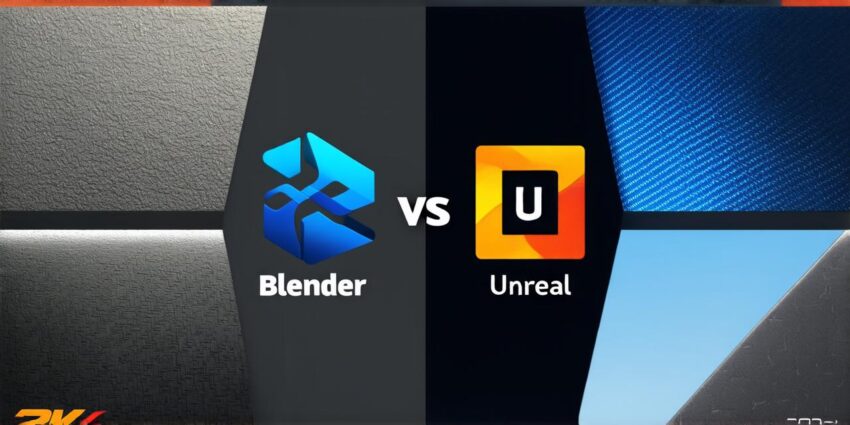Introduction
Blender and Unreal Engine are two of the most popular game engines on the market today. Both engines have their own strengths and weaknesses, and which one is superior will depend on the specific needs of your project. In this article, we’ll take a closer look at both engines and compare their features to help you make an informed decision.
User Interface
One of the key differences between Blender and Unreal Engine is the user interface. Blender has a more intuitive and beginner-friendly interface, while Unreal Engine is more complex and requires more time to learn. This can be a major factor for beginners or those working on smaller projects with limited resources.
Performance
In terms of performance, Unreal Engine generally outperforms Blender. This is due in part to the fact that Unreal Engine was originally designed for high-end gaming and visual effects, while Blender was primarily used for 3D modeling and animation. However, this difference in performance is not as significant as it once was, and both engines are capable of producing high-quality results.
Features
Both Blender and Unreal Engine offer a wide range of features, but they approach them differently. Blender has a more integrated workflow, with all the tools you need to create a project in one place. This can be a major advantage for smaller projects or those working with limited resources. In contrast, Unreal Engine is more modular, allowing you to add and remove features as needed to fit the specific needs of your project.
Community Support

Unreal Engine has a much larger and more established community than Blender. This means there are more resources available for learning and troubleshooting, as well as more plugins and assets to choose from. However, Blender’s community is growing rapidly and there are now many resources available for both beginners and advanced users.
Cost
Both engines offer free versions with limited features, as well as paid versions with additional capabilities. Unreal Engine’s paid version is more expensive than Blender’s, but it also offers more advanced features and support.
Summary
In conclusion, neither Blender nor Unreal Engine is clearly superior to the other. Both engines have their own strengths and weaknesses, and which one is better suited to your needs will depend on the specific requirements of your project. If you’re a beginner or working on a smaller project, Blender may be the better choice due to its more intuitive user interface and integrated workflow. However, if you need advanced features and support, Unreal Engine may be a better fit. Ultimately, it’s up to you to weigh the pros and cons and choose the engine that best meets your needs.
